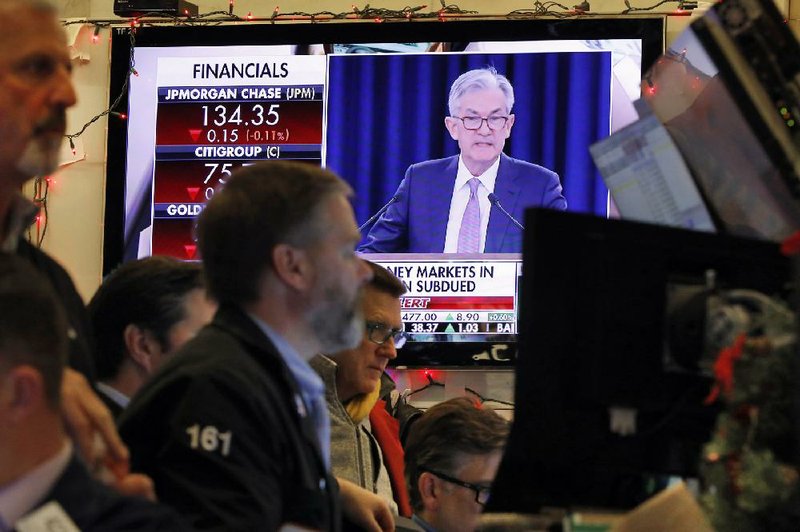WASHINGTON -- The Federal Reserve approved a proposal Thursday to loosen a financial-crisis-era rule that prevents banks from investing in venture-capital funds.
The proposal would affect the so-called Volcker Rule, which was created after the 2008 financial meltdown. The rule bars banks from trading with government-insured deposits in an effort to prevent the kind of excesses that led to the financial crisis and recession. Thursday's proposal would clarify several aspects of the rule and follows a previous loosening of the Volcker Rule last fall.
The Commodity Futures Trading Commission, Federal Deposit Insurance Corp., Securities and Exchange Commission and Office of the Comptroller of the Currency also signed off on the proposal.
The effort comes a decade after risky trading was blamed for contributing to the near collapse of the U.S. financial sector and is part of a sweeping industry deregulation under the Trump administration that has helped boost banks to record profits.
Restricting risky trading under the rule, which was named for Paul Volcker, a former chairman of the Federal Reserve, has made the financial system safer, supporters of the rule say. But the industry has called it too cumbersome and time-consuming and spent years calling for changes.
The proposal was approved by the Fed's governors on a 4-1 vote, with Fed Chairman Jerome Powell supporting the change.
"We have learned that a simpler, clearer approach to implementing the rule makes it easier for both banks and regulators to carry out the intent of the rule," Powell said in a statement. The regulators say they're changing parts of the original Volcker Rule that don't raise concerns it was meant to address.
One Fed governor, Lael Brainard, opposed the proposal, arguing that it would "weaken core protections in the Volcker rule and enable banking firms again to engage in high-risk activities." FDIC board member Martin Gruenberg also opposed the proposal.
The public has until April 1 to comment on the proposal.
The Fed argues that banks can already make direct investments in startup companies and that the rule change would simply allow them to do it indirectly through a venture-capital fund. Banks will still be subject to existing capital constraints, which could dissuade them from directing a lot of their own money into new venture-capital funds.
Easing venture-capital rules could help banks seize on the desire from institutions and wealthy individuals to take early stakes in promising startups and other ventures. Keeping more of their own money in venture capital funds can show clients that banks have skin in the game. That approach does come with risks, however, as was shown in the dot-com crash that saw banks' investments in tech firms plummet in 2001.
Even with the restrictions imposed by the Volcker Rule, banks have found ways to invest in startups over the past decade, mostly because the law didn't curtail direct investment. Goldman Sachs Group Inc. saw a $5 million wager on Uber Technologies Inc. in 2011 grow into a stake worth hundreds of millions of dollars when the ride-sharing company went public last year.
In addition to the elimination of the venture-capital restrictions -- including allowing banks to sponsor funds -- the agencies are also proposing letting lenders get back into funds that "make loans, invest in debt securities or otherwise extend credit." They also would set up a smoother path for banks to do business with family offices that handle investments for wealthy clients and fix what they see as unintended restrictions on banks' involvement with foreign funds.
The proposal would also let Wall Street put more types of assets into loan securitizations to give banks "greater flexibility to sell and securitize loans." And it would permit banks to set up funds "designed to facilitate transactions between a banking entity and a single customer."
Powell said the changes are "consistent with safety and soundness and absolutely consistent with the spirit of the Volcker rule."
But Brainard argued that the changes would allow banks to invest in riskier credit funds, which pool money to provide long-term loans.
"Some credit funds played a material role in the financial crisis," Brainard said. "These funds were not transparent in their activities, misled investors, and contributed to the financial abuses Congress intended to address" with its post-crisis regulatory reforms.
Information for this article was contributed by Christopher Rugaber of The Associated Press, by Renae Merle of The Washington Post and by Jesse Hamilton of Bloomberg News.
Business on 01/31/2020
